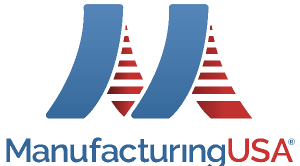


Hybrid fuel-cooled oil cooler with additively manufactured shell and cooling channels manufactured using traditional methods.
Problem
Fuel-cooled oil coolers (FCOCs) are in power plants utilized by the Department of Defense (DoD) fleet for cooling turbine oil and pre-heating fuel. These heat exchangers are an emerging sustainment obstacle due to growing supply chain concerns, high part costs, long lead times, and increasing replacement volume. Traditional manufacturing of FCOCs involves casting, machining, brazing, and/or welding, which are time and cost-intensive processes that can result in low product yield. New and reliable manufacturing options are needed to improve the production process for low-volume, hard-to-source FCOCs.
Objective
This program explored an approach for building sustainment FCOCs utilizing several different manufacturing processes combined into a single end-use component which achieves the intended function with the lowest technical risk.
Technical Approach
The University of Dayton Research Institute (UDRI) led the project team, which included Sintavia, Macy Consulting, Inc., Velo3D, Edare, and Triumph Thermal Systems to develop the hybrid manufacturing of FCOCs. The definition of the required qualification testing from Air Force stakeholders was established to deem a hybrid FCOC flight ready. To minimize risk in the use of Aluminum (Al) F357 for the FCOC family of parts, the team characterized the corrosion behavior of Laser Powder Bed Fusion (LPBF) Al F357 and determined suitable corrosion mitigation methods for operation in FCOC applications. Welding best practices and benchmarking of the weld compatibility of LPBF Al F357 were established when performed through the additive manufacturing (AM) process. The team also characterized the best method of tube joining (brazing, laser welding, mechanical joining, etc.) for FCOC applications. Finally, the thermal, pressure, and particulate release data from flow testing of various FCOCs at their respective operation conditions was collected and analyzed.
Accomplishments
Under this program, critical gaps in material databases were identified and explored, and data was delivered to Air Force and industrial partners for use in the development of Hybrid Additive Manufactured Oil Cooler (HAMOC) style FCOCs for sustainment applications. Corrosion of Al F357 and weld compatibility were performed to assess the material for use in HAMOC-style FCOCs. Laser welding of tubes for FCOC core production was gauged at a feasibility level and provided promising results, especially considering the low-part yield from vacuum brazing. An evaluation of the thermal exposure impacts on mechanical properties of Al F357 was performed and it was discovered that, while hot isostatic pressing (HIP)+T6 behaves similarly to cast material and is a good candidate for direct replacement, stress-relief-only heat treatment enables mechanical property stability to at least 350°F.
Project Participants
Project Principal

Other Project Participants
- Sintavia
- Macy Consulting, Inc.
- Velo3D
- Edare
- Triumph Thermal Systems
Public Participants
- U.S. Department of Defense
